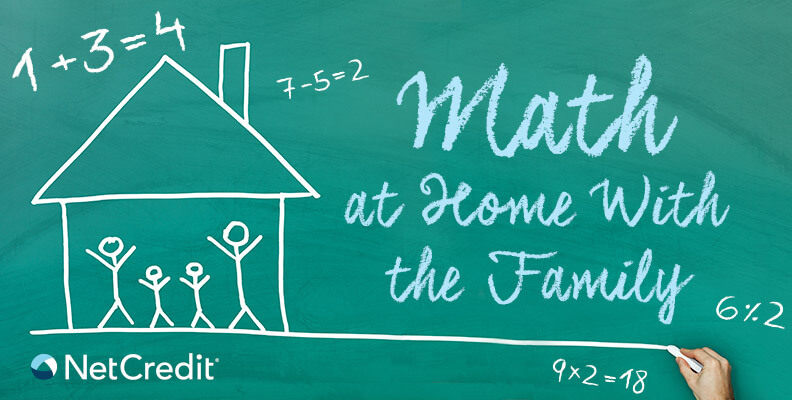Think back to those wonder years when you were in grade school. If you made a list of your favorite classes in school, where would math class be on your list?
For many kids today, just as in the past, math is often at the bottom of their lists. Some kids have heard that math is hard to do from other kids, but also from adults. That’s unfortunate, because math is so important for so many facets of our daily lives. But math is also crucial for our long-term career and financial success, as well as for national security and growth.
The truth is that math is all around us, and yes, doing math can be fun. One of the best ways to help kids succeed in math is to show them how math is part of our everyday lives and can, in fact, be fun at any age!
Dos and Don’ts of Integrating Real World Math in Your Household
Don’t let them tell you math isn’t important to their dream job
Does your child dream of becoming an laywer, firefighter or police officer? On the surface, these careers may not be very math heavy, and practicing math may seem pointless. However, there is some degree of math being used in practically every career.
Take the time to show them how math is involved in that person’s training and success. Yes, there are some careers that require more math skills than others, but most jobs involve math in some way. Even careers that don’t seem to require much math, such as music and the arts, actually benefit from a strong foundation in math. At the very least, you’ll need math to figure out the paycheck you receive for any job.
For instance, say your child plans to be a veterinarian. He or she loves animals and wants to care for them. A veterinarian needs to have math skills in order to figure out the proper dose of medicine for a sick pet. Also, a vet must be able to maintain good financial records in order to stay in business. More importantly, math is a crucial part of the studies veterinarians have to undergo so that they know how to diagnose and care for pets and animals with illnesses. In short, although it appears as though a vet wouldn’t need to know math, take the time to point out that it does a play a big part in the work. Computer software designers, construction workers, teachers (not just math teachers), doctors, and bus drivers are just a few other examples of careers where math skills are necessary for success.
Do look for teaching opportunities in daily tasks
Math can come in handy in many normal life activities, so use those activities as teaching opportunities. Below are just a few examples of how you can practice math during typical family activities:
- Your child may want to buy a shirt at the mall that is 30% off the original price. If he or she knows how to calculate percentages and can come up with the new price, you may let him or her buy the shirt.
- How often do you travel by car for a family vacation? Invariably, someone will ask “are we there yet?” This is another opportunity to practice basic math skills, so ask your child to figure out when the family will arrive. Your child will need to find out how fast you are traveling in miles per hour (MPH), then factor in the amount of miles left in the trip.
- Grocery stores are an especially good place to practice math. Before you go, give your child a budget and have them create a shopping list based off of the ads for the week. When debating between brands of a similar product, compare the amount with the price to get the per unit cost to see if they truly are comparable. You can also use the grocery store to review nutrition labels and discounts based on coupons. Grocery shopping is a great place to teach family members how to make valuable decisions. This is an especially good learning opportunity for your high school graduates who may soon be moving out on their own!
- Allowance is a great way to reward good behavior and practice real world budgeting. Encourage them to use math to see how much they’ll have left of their allowance after buying a new pair of shoes or seeing a movie with friends.
- When your child gets old enough to drive, have them record how many miles they drive per tank and how much they spend. Have them average out each one so they can also learn how gas mileage varies based on what kind of driving you’re doing.
If you’d like to practice even more math, ask your child’s teacher for additional resources or use any of these websites for free printables.






